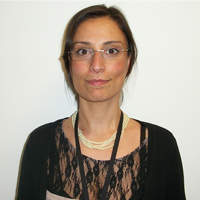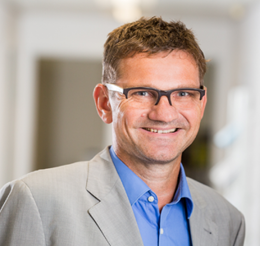 John Hoddinott | Chair
John Hoddinott | Chair
John Hoddinott is the H.E. Babcock Professor of Food and Nutrition Economics and Policy, Cornell University and a Non-Resident Senior Fellow, International Food Policy Research Institute. His research focuses on the determinants and consequences of poverty, food insecurity and undernutrition. Born in Canada, he has a BA in Economics from the University of Toronto and a doctorate in economics from the University of Oxford.
 Grazia Pacillo | Presenter
Grazia Pacillo | Presenter
Grazia Pacillo is a senior economist with more than 15 years of experience in research on food and agricultural systems resilience and transformation. She co-leads the CGIAR FOCUS Climate Security team. Her current research interest lies in evaluating the role of climate as a “threat multiplier”. She holds a Doctor of Philosophy degree in Economics and a Master of Science degree in Development Economics from the University of Sussex (UK).
Marco Alfano | Presenter
Marco Alfano is a lecturer at the Department of Economics, University of Strathclyde and a Research Associate at the the Centre for Research and Analysis of Migration (CReAM), University College London. He is an applied economist and his research interests are development economics, economics of conflict, economics of religion, and economics of migration. His current research focuses on the determinants and consequences of conflict.
Irmeli Mustalahti | Presenter
Irmeli Mustalahti is a professor of natural resource management and a development researcher specializing in social science environmental research, with an international research team working in Finland, Russia, Tanzania, Nepal, Laos, Mexico and Indonesia. The research team examines the opportunities for citizens to participate in and influence the management and use of natural resources. The Responsive Natural Resources Governance research group is currently funded by, for example, the Academy of Finland and the Strategic Research Council. The Mustalahti research group has a strong goal of social interaction, and therefore the research group co-produces information with both organizations and private sector actors.
 Conrad Schetter | Discussant
Conrad Schetter | Discussant
Professor Dr. Conrad Schetter is the Director of BICC (Bonn International Centre for Conflict Studies). Before joining BICC, he was at the Center for Development Research (ZEF), Bonn University (1999 to 2013); his last position there was Acting Director of the department Political and Cultural Change. He holds a professorship for Peace and Conflict Research at Bonn University. His main research interest lies in topics at the nexus of humanitarian aid, development and conflicts, environmental peacebuilding and translocal migration. He is a regional expert on South and Central Asia as well as on East Africa. He is a member of the presidency of Welthungerhilfe.
 Join the network
Join the network John Hoddinott | Chair
John Hoddinott | Chair Grazia Pacillo | Presenter
Grazia Pacillo | Presenter Conrad Schetter | Discussant
Conrad Schetter | Discussant